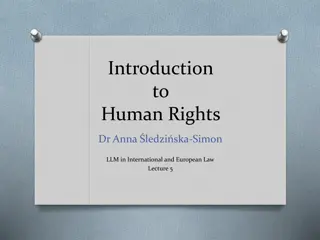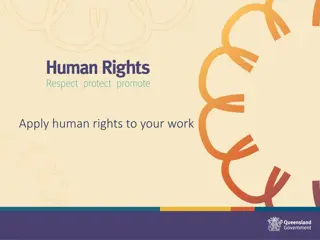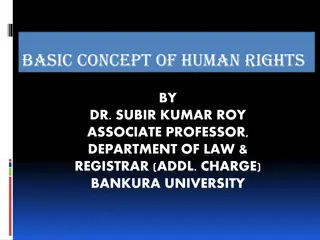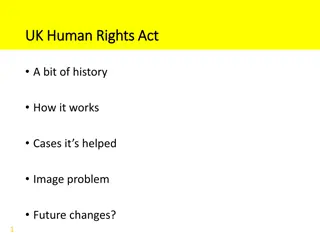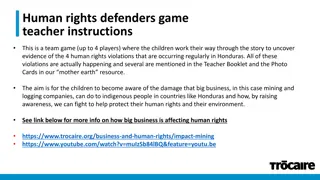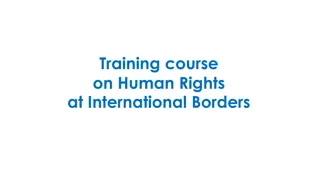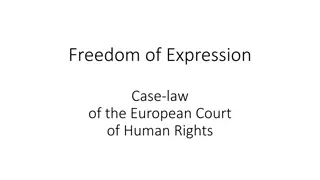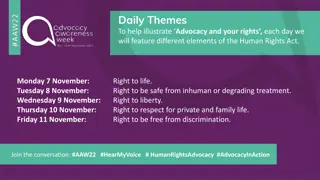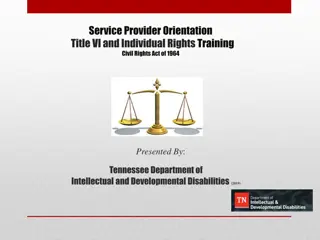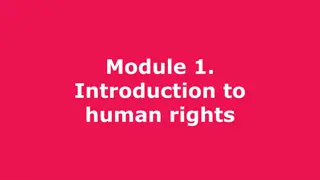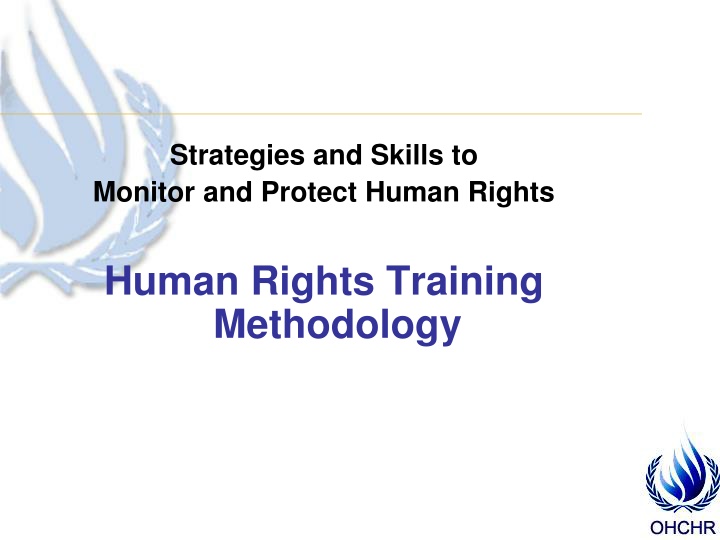
Effective Strategies for Human Rights Training
Explore the essential strategies and principles for conducting human rights training, including key terminology, practical approaches, interactive techniques, and ways to engage participants effectively in promoting and protecting human rights.
Download Presentation

Please find below an Image/Link to download the presentation.
The content on the website is provided AS IS for your information and personal use only. It may not be sold, licensed, or shared on other websites without obtaining consent from the author. If you encounter any issues during the download, it is possible that the publisher has removed the file from their server.
You are allowed to download the files provided on this website for personal or commercial use, subject to the condition that they are used lawfully. All files are the property of their respective owners.
The content on the website is provided AS IS for your information and personal use only. It may not be sold, licensed, or shared on other websites without obtaining consent from the author.
E N D
Presentation Transcript
Strategies and Skills to Monitor and Protect Human Rights Human Rights Training Methodology
Presentation Outline What do you mean by human rights training ? Key Terminology Main Principles for human rights training
HUMAN RIGHTS TRAINING is an organized effort to transfer knowledge and develop skills and attitudes that encourage behaviour to promote and protect human rights
HUMAN RIGHTS TRAINING organized sensitizing and empowering focusing on the learner action -oriented
KEY TERMINOLOGY Briefing brief introductory overview of a topic to introduce the audience to some basic concepts Seminar organized exchange of vioews and knowledge, bringing together various persons who contribute to the examination of a subject from different points of view
KEY TERMINOLOGY Workshop exercise in which participants work together to study a particular subject (learning) and develop a final product (declaration, plan of action, policy etc) Training Course organized exercise for trainees to improve knowledge, acquire skills and be sensitized (change negative attitude or reinforce positive attitudes)
- HUMAN RIGHTS TRAINING - PRINCIPLES Audience specificity / practical approach Collegial presentations Interactive training techniques Linkage to policies and other measures
- HUMAN RIGHTS TRAINING - PRINCIPLES Audience specificity / practical approach - focus on audience: relevance to their daily experience/work - includes practical information/techniques - involved target audience in the training team (both design and delivery) - role of participants experience
- HUMAN RIGHTS TRAINING - PRINCIPLES Collegial presentations (Training Teams) - Audience-specific expertise (professional culture, peer training) - Human rights expertise, to appropriately cover applicable human rights standards - Able to apply interactive training methodology
- HUMAN RIGHTS TRAINING - PRINCIPLES Interactive training techniques - Presentation and discussion - working groups - Case studies - Brainstorming - Role Playing - Panel discussion - Filed trips
- HUMAN RIGHTS TRAINING - PRINCIPLES Linkage to policies and other measures - Policies concerning training (sustainability) - Broader human rights policies - Other measures
CIRCULAR TRAINING MODEL Individual and organizational learning needs (TNA) Learning objectives Training Design Individual and organizational benefits Training Delivery Training Results


